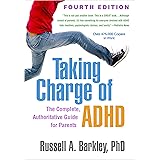Welcoming a four-legged friend into your family can be a great decision for many people. All children can benefit from a furry companion, but the positive effect of pets on children with special needs is something truly remarkable. Caring for a pet is especially beneficial for children on the autism spectrum, as pets can provide a calming presence to help the child navigate their daily life. The relationship formed between a child with special needs and their pet will vary from situation to situation, but in most cases it will be a beautiful friendship. This brief guide explores the many wonderful and intricate ways pets can help children with special needs.
Emotional support
One of the most beneficial ways pets help children with special needs is through emotional support. Though pets can’t talk or comfort in the same way that humans can, they are still able to provide a calming presence to those who need it. Interacting with a pet can help individuals reduce their stress or anxiety and can help improve their mood though positive interactions. This can be particularly helpful for children on the autism spectrum who may regularly become overwhelmed by their surroundings. Having a pet nearby can help them calm down more quickly and in a more constructive manner. Emotional support can also come in the form of stopping the child from destructive behaviors. Some emotional support pets are specifically trained to identify and deter harmful behaviors in their owners. Sometimes, however, it’s enough to know that your pet is simply there for you. Having a pet can help a child learn empathy and kindness and can get them through tough moments simply by being there.
Mobility support
Some pets are able to offer mobility support to their owners. The most common example of this is guide dogs for individuals who are blind or visually impaired. Working with a guide dog often requires a significant amount of training and practice, but it can help individuals navigate the world far more easily and independently than they would be able to do alone. Pets can also help children who have other special needs related to mobility. For young children who may have trouble walking, a dog can provide a stable support to help them gain their footing. On a slightly larger scale, horses have also proven a very effective pet for people with special needs. Equine-assisted physical therapy is very popular for individuals who have mobility-related special needs.
Medical support
Not only does owning a cat or dog provide the standard health benefits of reducing heart rate, blood pressure, and feelings of anxiety, but it can also provide more specialized medical support for children with special needs. Just as some dogs have been trained to lead blind individuals, others can be trained to identify specific changes in their owner’s health. Certain breeds are able to recognize the slightest shift in their owner’s blood pressure and are thus may able to prevent seizures or heart attacks. Others are able to identify potential allergens in their owner’s food, which can be crucial to individuals with life-threatening allergies.






